Introduction
- What is Alibaba Group:
- is an e-commerce company located in China.
- was founded in 1999 (The History & Timeline of the Alibaba Group, 2014).
- is aimed at creating and offering marketplaces for retailers as well as wholesalers from all over the world (Alibaba Group Holding Ltd (BABA.N), n.d.).
- Why Alibaba Group:
- E-commerce market;
- Company’s development;
- Strong corporate culture.
- Goals:
- To evaluate the company’s corporate culture and employees’ adherence to it;
- To identify issues that the company faces as regards:
- human resources management;
- corporate policies;
- public relations;
- ethical conduct.
Alibaba Group was founded in 1999 by Jack Ma and 17 more people. Initially, it aimed at the creation of the marketplaces for Chinese entrepreneurs, but soon it became international.
As for the basis of my choice, I chose the company as it is operating in one of the most promising markets. It is a competitive market, but the company manages to be successful and develop at a significant pace. Finally, the company is characterized by a strong corporate culture that accounts for the organization’s success.
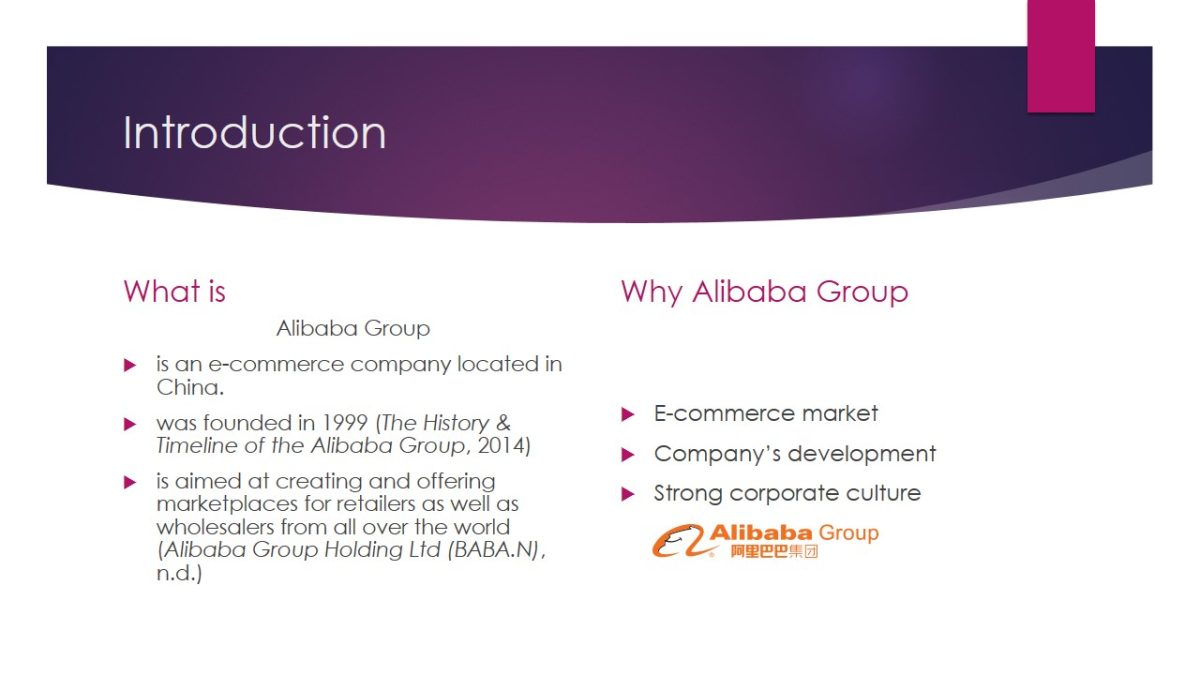
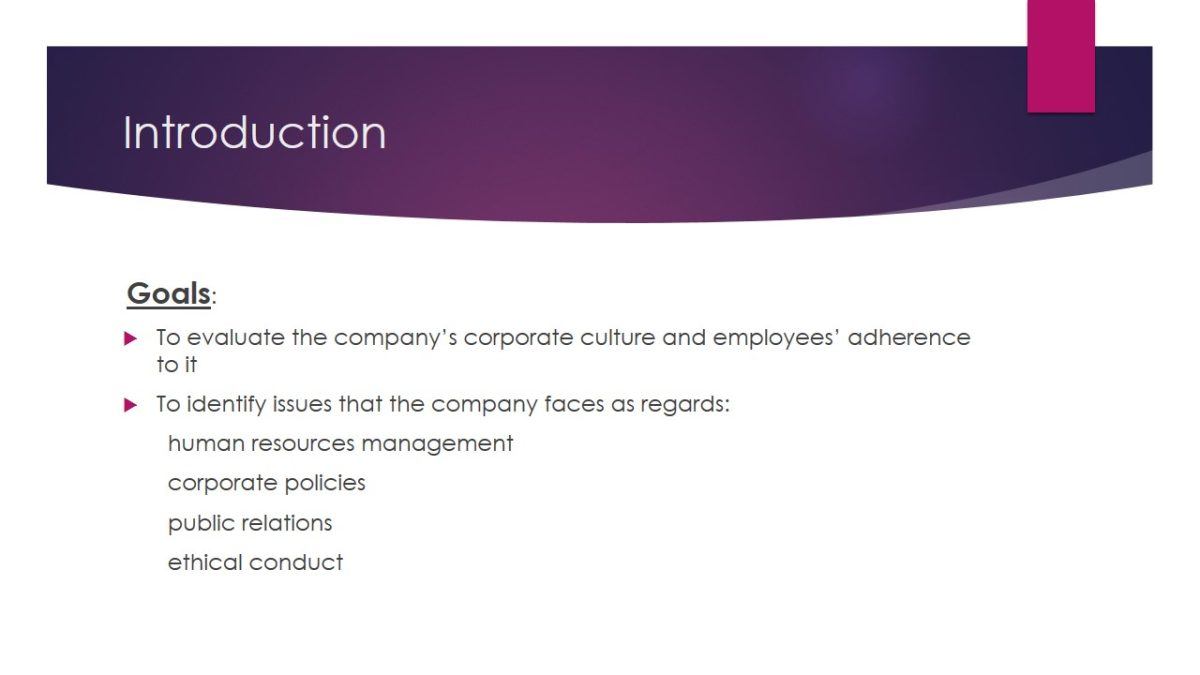
Organizational Overview
- Location: China
- Operation: Worldwide
- Market: E-commerce
- Services: Taobao Marketplace, Tmall, Juhuasuan, AliExpress, 1688.com, Alibaba.com (Alibaba Group Holding Ltd (BABA.N), n.d.)
- Mission:
- The organization’s mission is “to make it easy to do business anywhere” (Company overview, 2016, para. 1).
- Vision:
- Alibaba Group aims at creating “an infrastructure of commerce” and be “a company that lasts at least 102 years” (Company overview, 2016, para. 2).
- Values:
- The company’s six values are:
- customer first;
- teamwork;
- embrace change;
- integrity;
- passion;
- commitment.
- The company’s six values are:
The company’s leadership (Alibaba Group Holding Ltd (BABA.N), n.d.):
- Yun Ma – Executive Chairman,
- Michael Evans – President,
- Yong Zhang – Chief Executive Officer,
- Maggie Wu – Chief Financial Officer,
- Zhaoxi Lu – The Board Vice Chairman,
- Peng Jiang – Deputy Chief Technology Officer,
- Jian Wang – Chief Technology Officer,
- Timothy Steinert – Corporate Secretary,
- Lei Peng – Chief People Officer,
- Shan Dai – Chief Customer Officer,
- Xiaofeng Shao – Chief Risk Officer,
- Masayoshi Son – Director,
- Hwa Tung – Independent Director Appointee,
- Wan Ling Martello – Independent Director,
- Teh Ming Kwauk – Independent Director Appointee,
- Jerry Yang – Independent Director Appointee.
The company is located in China but operate worldwide. The organization operates in the e-commerce market. The services are as follows:
Taobao Marketplace (the Chinese online shopping platform), Tmall (the Chinese brands and retail), Juhuasuan (online sales platform where consumers’ demand is aggravated with the help of short discounted sales, AliExpress (“the global consumer marketplace targeting consumers around the world”), 1688.com online wholesale marketplace operating in China, Alibaba.com (online B2B platform) (Alibaba Group Holding Ltd (BABA.N), n.d.).
The company’s organizational structure changed three times. The last shift resulted in the creation of 25 small groups that concentrate on a particular sphere. For instance, Alibaba Group provides the retailers and wholesalers platform for B2B and C2C business. The group also provides loans, insurance. It also has a TV channel and its own film and television production company (Friedman, 2016a).
The company’s leadership covers such spheres as corporate governance, financial management, HR management, public relations, and technological development. It is also clear that the company has divisions operating in different markets as the top managers concentrate on the overall group’s operations as well as particular divisions (Alibaba Group Holding Ltd (BABA.N), n.d.).
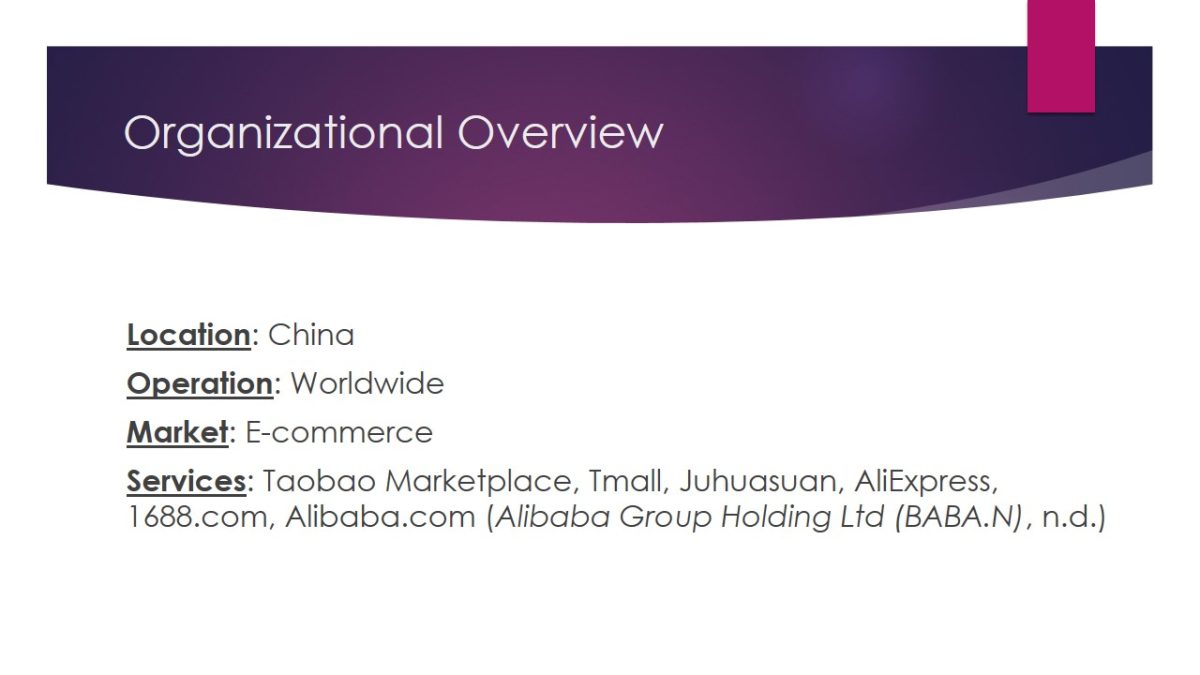
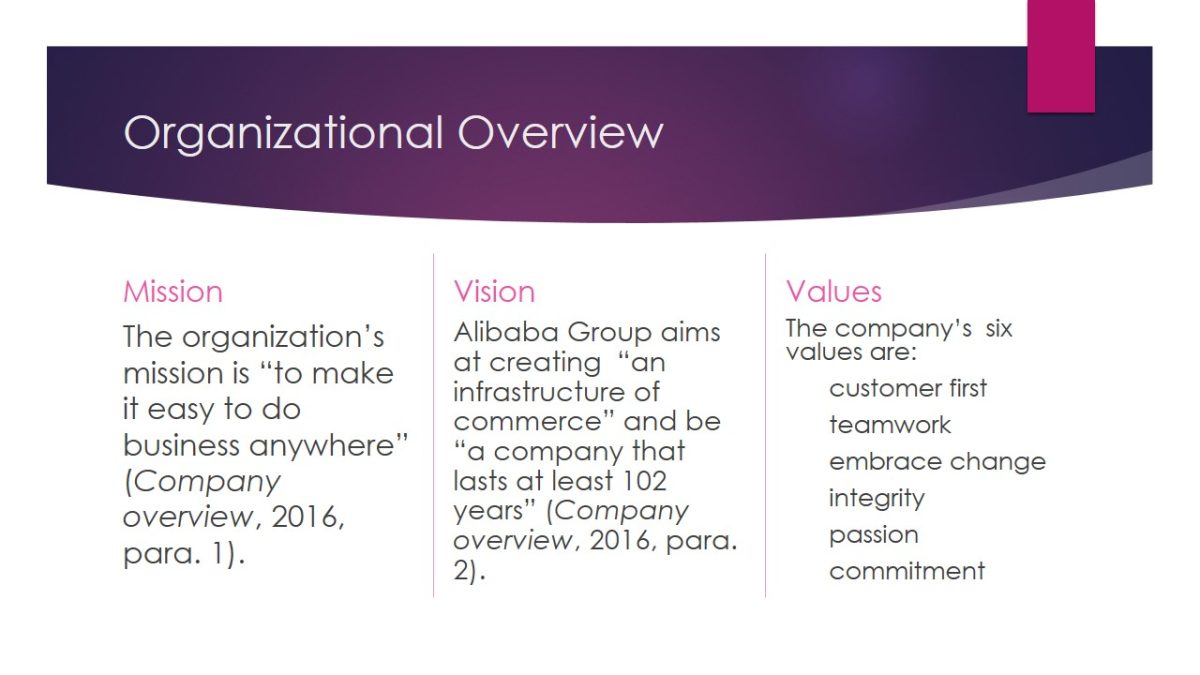
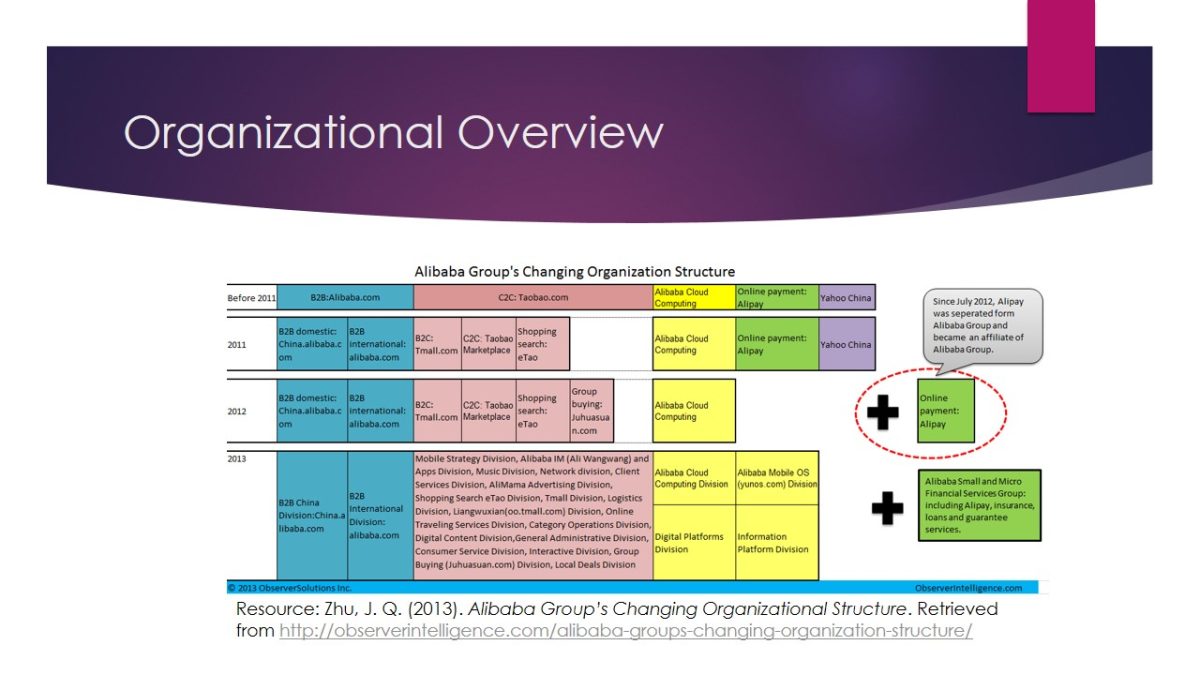
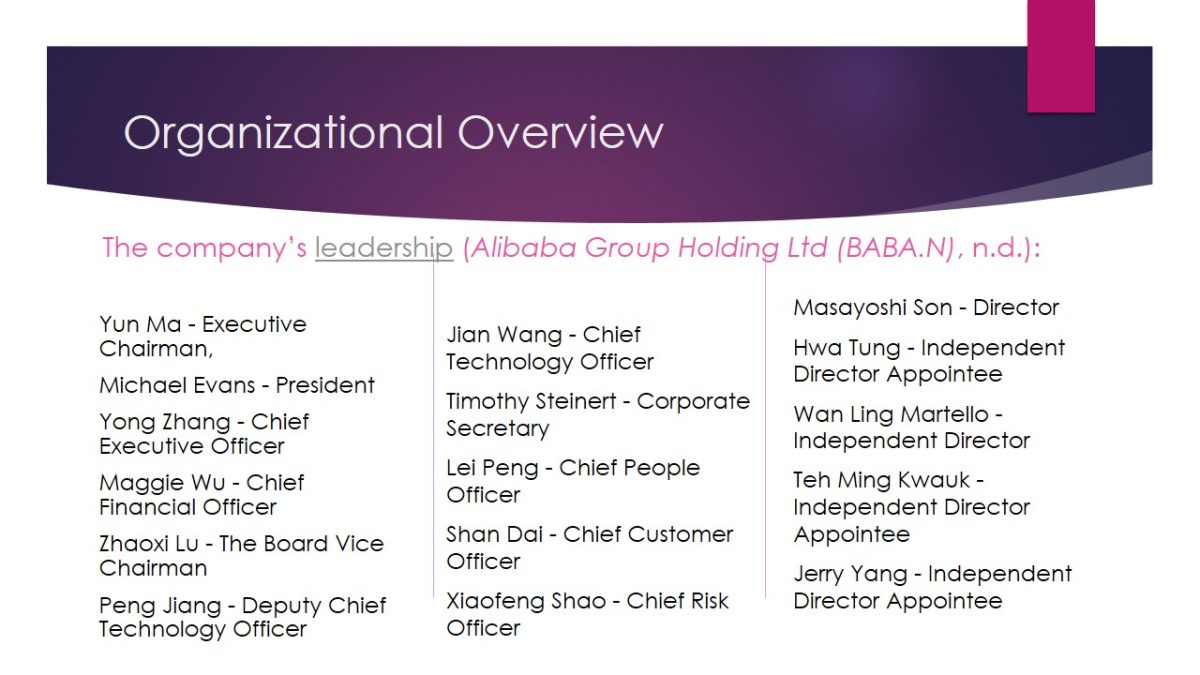
Organizational Overview: Structure & Diversity
- Operations:
- Different Markets;
- Different Services;
- Maintaining the focus.
- Human Resources:
- Gender;
- Age;
- Ethnicity;
- Experience/Educational background.
The organizational structure contributes to the diversity as regards operations. The group operates in different markets and provides various services that minimize risks and maximizes the profitability of the group. Importantly, Alibaba Group is divided into smaller groups that focus on a particular segment. This focus is a significant competitive advantage as the group can develop popular services.
As for the human resources management, the structure reveals the diversity in this sphere as well. Even the company’s leadership reflects the diversity. People of different genders, ages, ethnicities and educational background, as well as working experience, can contribute to the generation of creative ideas that help the group remain competitive.
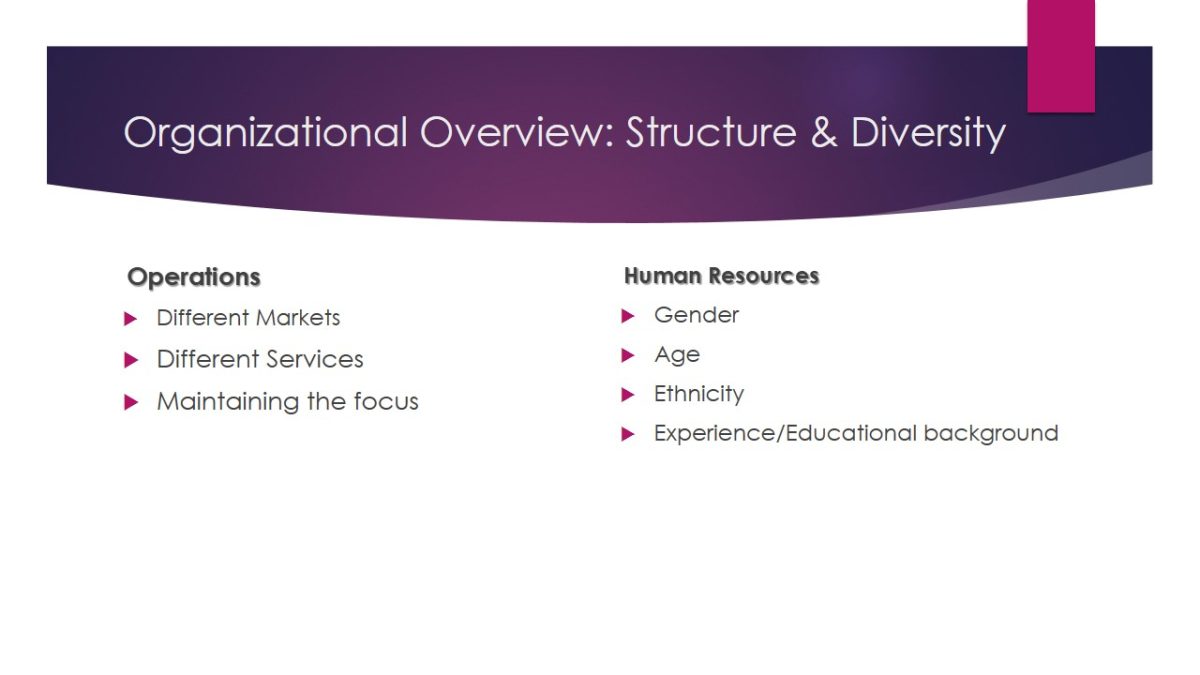
Organizational Overview: Structure & Organizational Statements
- The decentralized structure relates to the values stipulated (Kirkhaug, 2009).
- The evolution of the structure also mirrors the company’s values (Livas, 2009).
The decentralized structure is a manifestation of the company’s values especially when it comes to such values as the customer first, change and teamwork (Kirkhaug, 2009). Each division focuses on particular markets, customers and services, which enables them to identify and satisfy customers’ needs. The change of the structure from simple to complex can be seen as the adherence to such values as change, teamwork, integrity (Livas, 2009).

Operations Strategy and Quality Management
- Operations management is a set of measures aimed at addressing organizational strategic goals and managing current operations.
- Operations management is associated with the implementation of a quality management system that focuses on the production and marketing of new services and products (Nickels, McHugh, & McHugh, 2013).
Human Resources:
- Adherence to high standards.
- Awarding high achievers.
- Provision of ongoing training.
- Commitment to “conscious capitalism” (as cited in Brennan, 2016, para. 7).
Public Relations:
- Social responsibility (Sustainability, 2016).
- Environmental responsibility (Sustainability, 2016).
- Contributing to the development of the impoverished communities (An introduction to Taobao villages, 2016).
Product Development:
- Innovation.
- High quality.
- Cross-functional teams.
Finances:
- Transparency.
- Integrity (Corporate governance, 2016).
As regards operations strategy associated with human resources, these include adherence to the highest standards, awarding high-performing employees, providing extensive training and commitment to “conscious capitalism” (as cited in Brennan, 2016, para. 7). In other words, the company is ready to invest in its employees to boost their commitment to the organization’s development.
As for public relations, the company is committed to the development of better communities, and it provides detailed information on its operations in this sphere. This contributes to the development of the favorable image.
When it comes to product development, the operations can be characterized by such features as innovation, high quality and the use of cross-functional teams. Thus, Product Manager, Moa Yao, develops teams consisting of IT specialists, marketers, designers.
The financial operations are characterized by transparency and integrity as high-achievers (both employees and partners receive awards and bonuses) (Corporate governance, 2016).
The use of cross-functional teams, as well as adherence to such features as high quality and innovation, reveals (and contributes) to the diversity. The teams include people of different ages, cultures, genders, ethnicities and backgrounds, which helps them generate ideas and bring them to life.
The company’s operations are characterized by such features as innovation, collaboration, transparency, integrity, quality, diversity, commitment, and responsibility, which are consistent with the organizational values. This enables the company to remain one of the leaders in the e-commerce market.
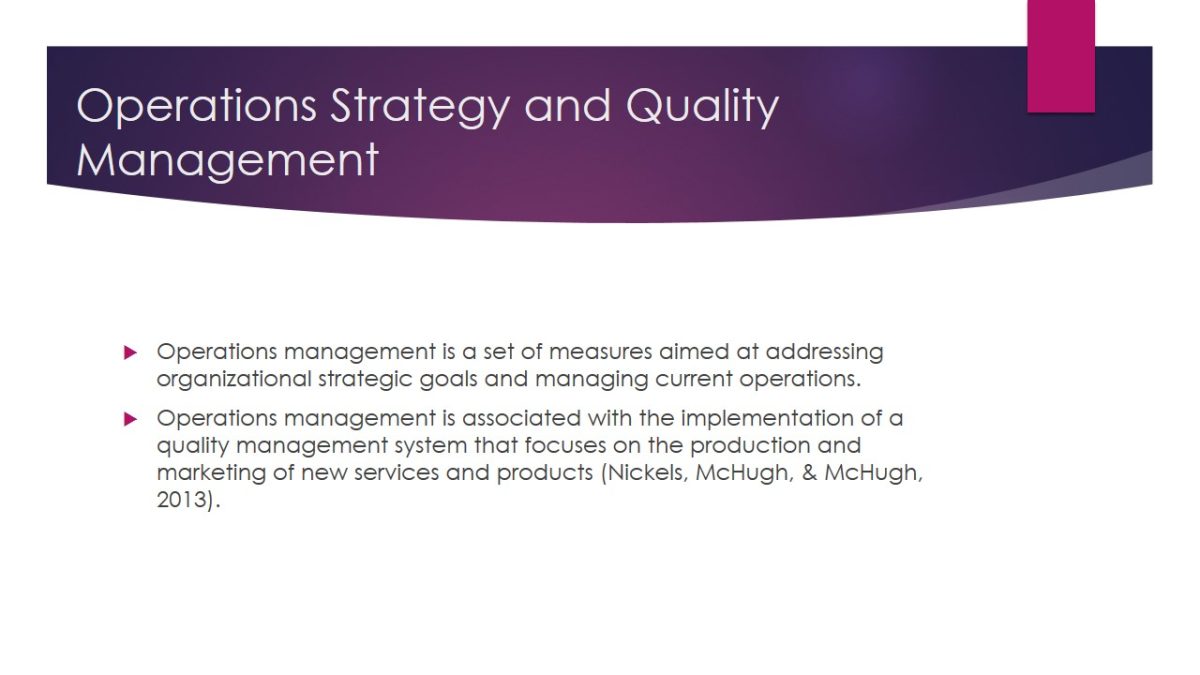
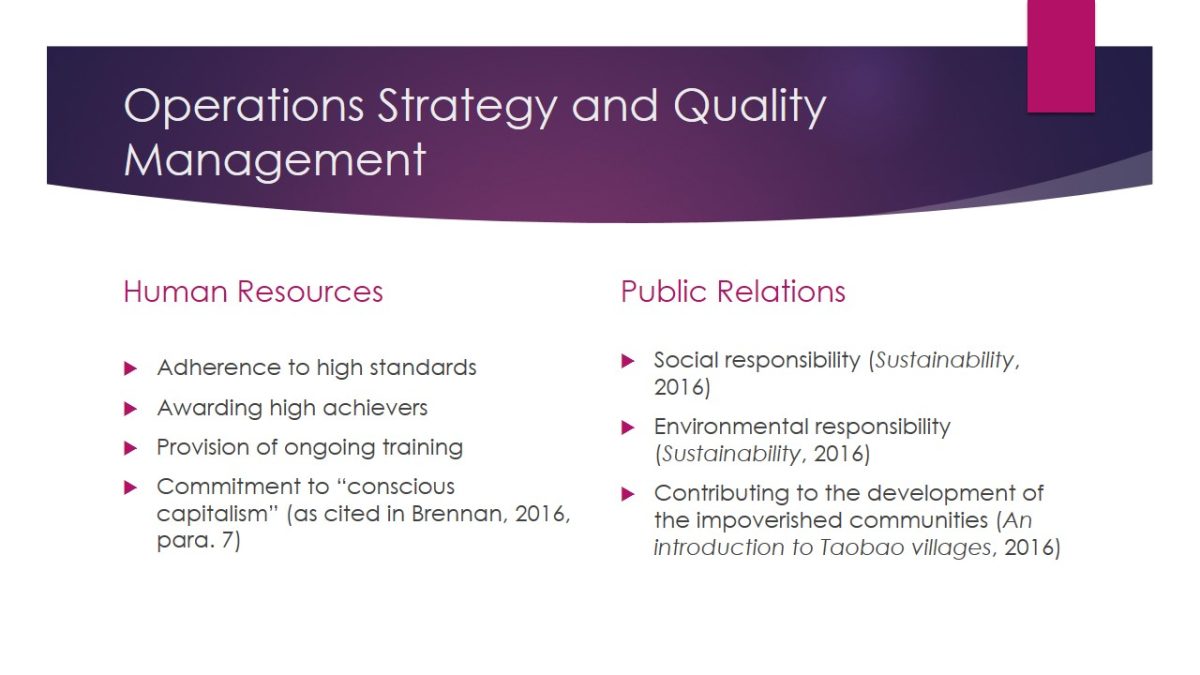
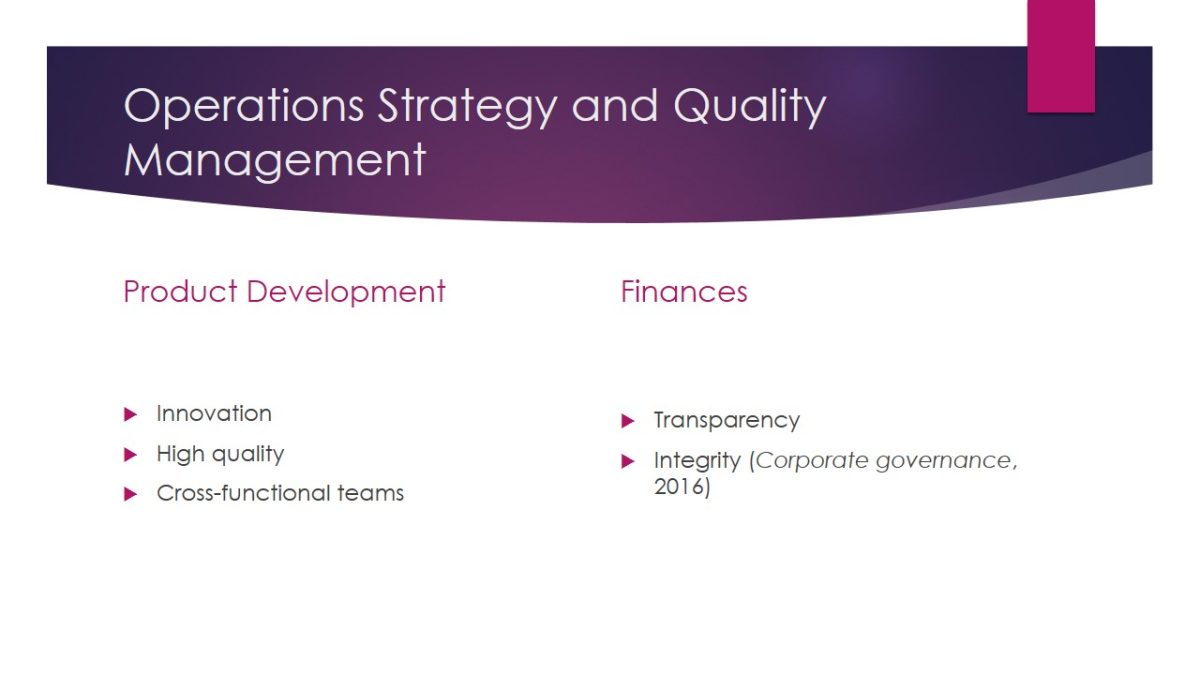
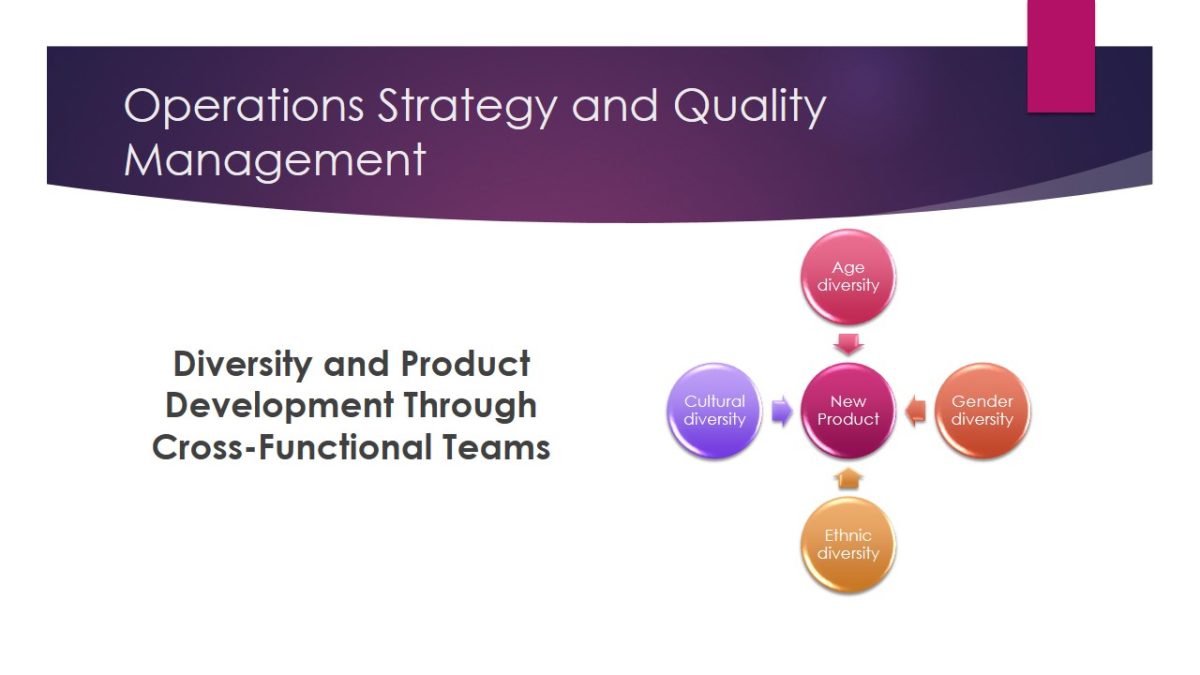
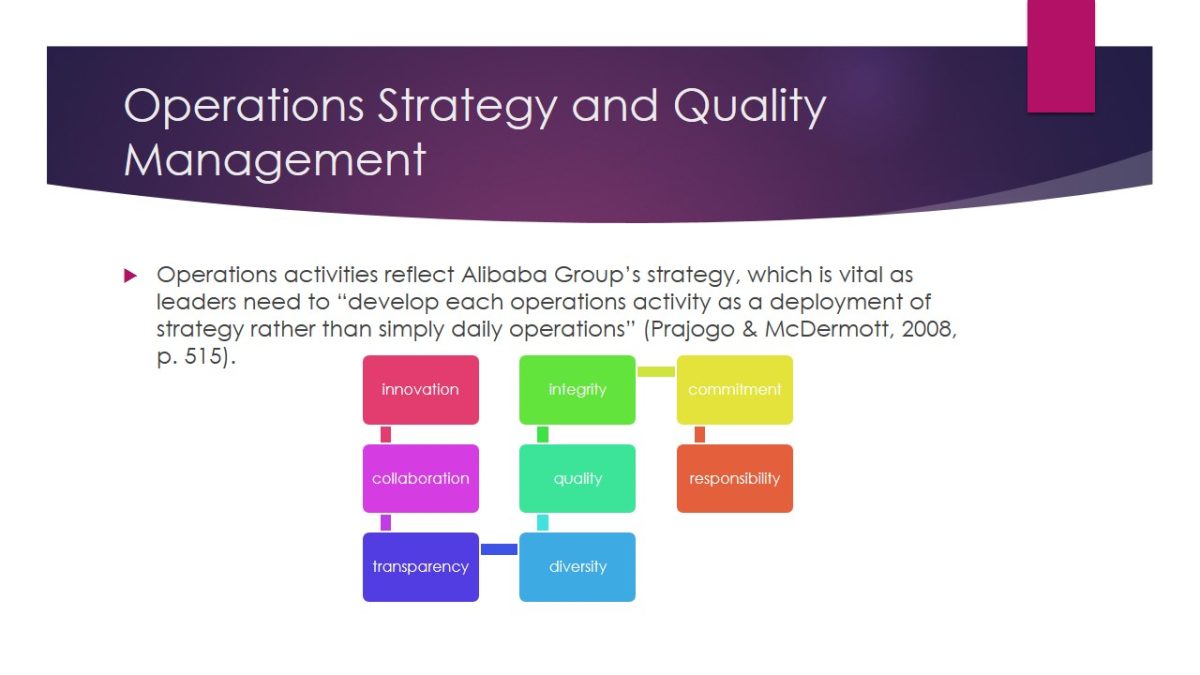
Human Resource Management
- Strengths:
- A significant degree of diversity
- Effective communication
- The use of cross-functional teams
- Diversity and Code of Ethics:
- The concept of diversity is absent (Code of ethics, 2014).
- No particular behaviors are described.
- The concept of diversity is not linked to the concepts of respect, integrity, and accountability.
- Limitations of Alibaba’s Code of Ethics:
- The lack of focus on the interaction within the diverse workforce
- Vague descriptions of equal opportunities (Code of ethics, 2014)
- Vague descriptions of the concept of discrimination
- Violations and the Code of Ethics:
- Detailed instructions on reporting violations
- No particular descriptions and definitions of violations
- The lack of descriptions of various behaviors that are regarded ethical
- Such code of ethics is unlikely to help address various issues related to diversity (Buller & McEvoy, 2012).
- Group Statements & Corporate Policies:
- Addressing customers’ needs globally
- The focus on teamwork
- Integrity is one of the priorities
- No descriptions of conduct in terms of diversity
- No clear understanding of the concept of integrity
- Inability to make strategic decisions (Kleasen, 2007; Pomeranz, 2009)
Alibaba Group’s HR management is quite efficient. It is characterized by a considerable diversity, effective internal communication, the utilization of cross-functional teams., which makes it a high-performing organization. However, there are still various weaknesses especially when it comes to diversity.
Although the company has representatives of many age groups, ethnicities, and females occupy high posts, it is impossible to note that the concept is integrated into the organizational culture. Thus, the concept of diversity is not explicitly present in the code of ethics. This document does not describe desirable and inappropriate behaviors as regards diversity. Finally, the code of ethics also includes such concepts as integrity and accountability, but they are only partially linked to the concept of diversity. This poses certain threats to the development of a truly diverse workforce in the future.
Other weaknesses of the code of ethics include the lack of attention to the interaction of diverse groups within the organization. The code of ethics also includes only vague descriptions of such concepts as discrimination and equal opportunities. This negatively affects the development of the organizational culture, and it may pose threats to the development of the company.
The code of ethics is characterized by such features as detailed descriptions of the way to report some violations. At the same time, there are no specific definitions or descriptions of these violations. More so, there are no specific descriptions of ethical behaviors. According to Buller and McEvoy (2012), the code that does not provide detailed guidelines concerning desired or appropriate behavior cannot contribute to the development of the organizational culture. The ethical conduct will be required, but employees will have different views on what such behaviors imply.
It is possible to note that the group statements are not properly aligned with the organization’s corporate policies. The company’s mission is to meet the needs of customers worldwide, but there is no focus on diversity in the company’s corporate policies. Managers simply do not know how to address needs of customers who are diverse in terms of culture, ethnicity and so on. The teamwork and integrity are the company’s priorities, but there is no clear understanding of the concepts and managers are likely to fail to make strategic decisions.
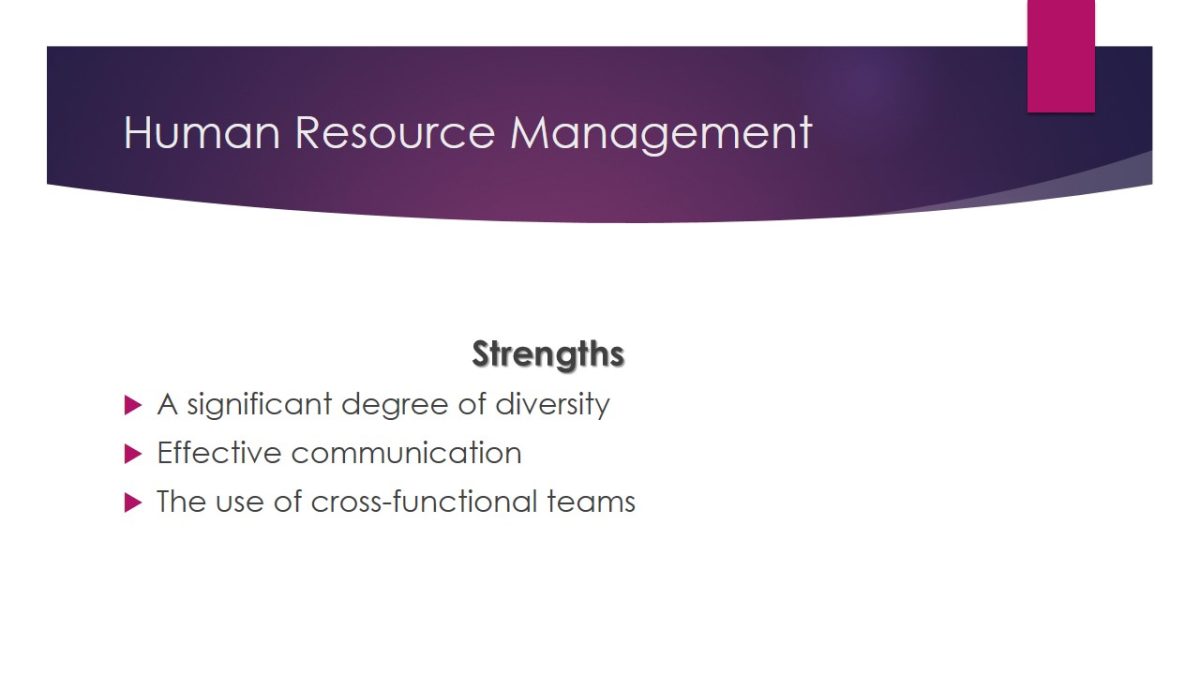
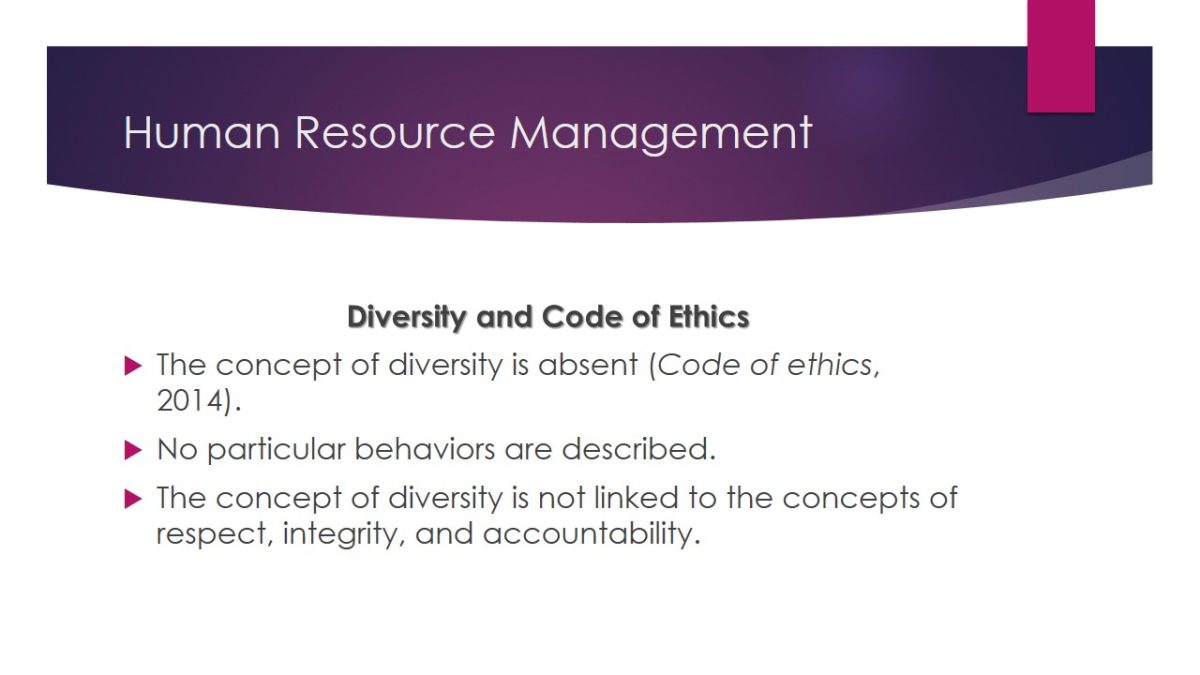
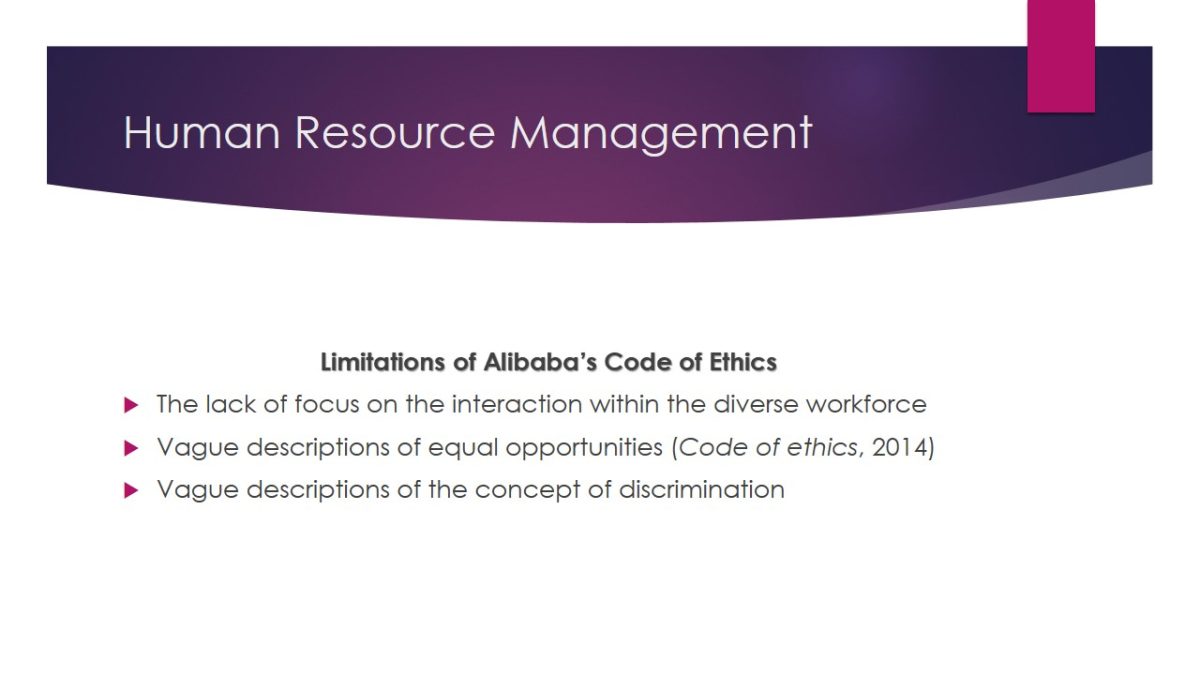
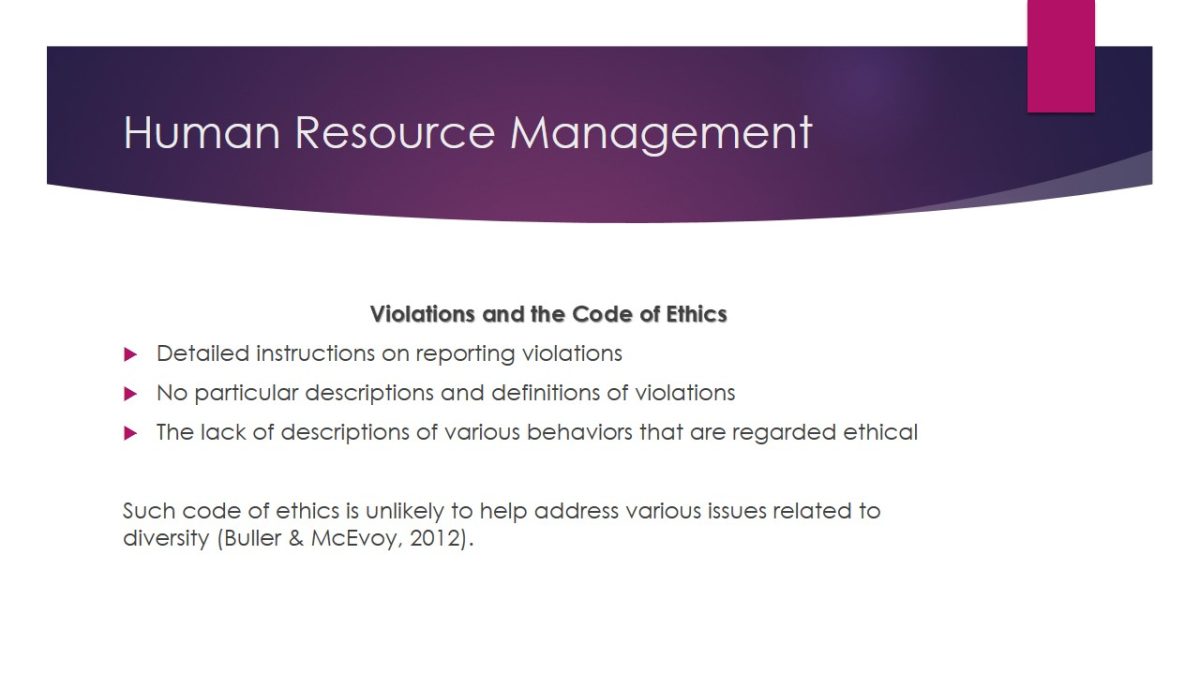
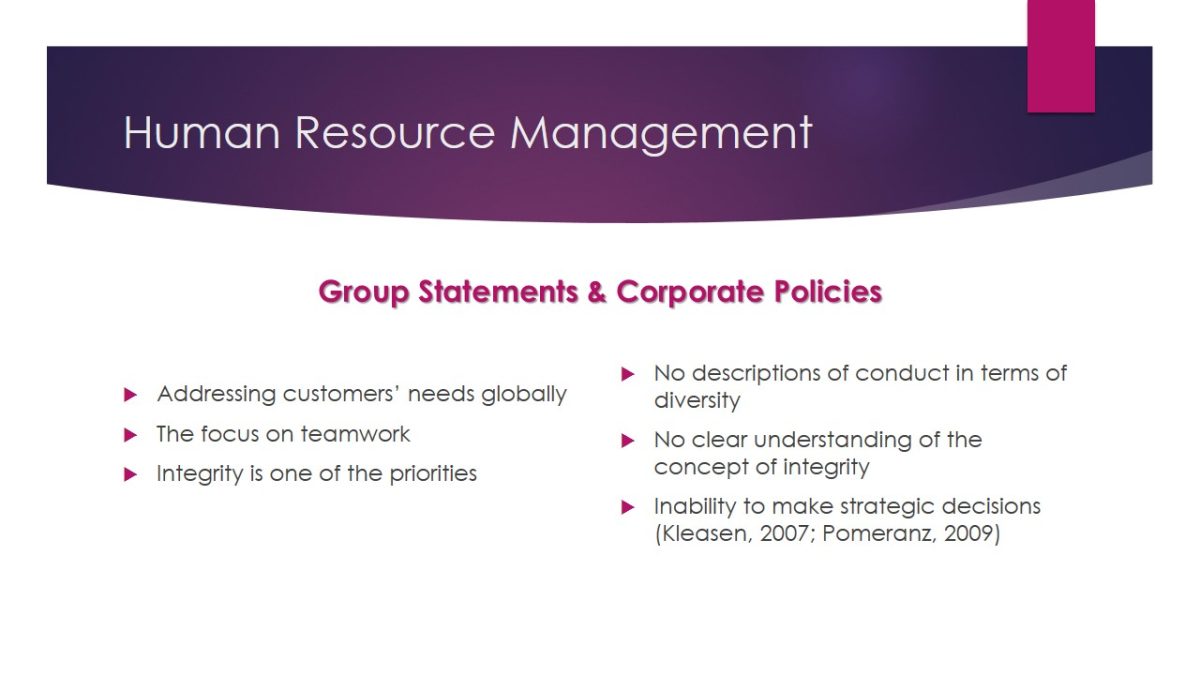
Marketing, PR & Corporate Citizenship
- Alibaba Group has various channels to promote its services:
- Websites;
- Its own TV channel (Friedman, 2016a);
- Social networks;
- National TV channels;
- Sponsorships;
- Participation in various projects and partnerships (Friedman, 2016b);
- Another important tool to promote products and services is the promotion of the company through the development of the corporate citizenship (Pomeranz, 2009).
- Corporate citizenship is a complex concept that involves the organization’s social and environmental responsibility.
- Multinationals and large companies have more responsibilities to the society (Aguinis & Glavas, 2012).
- Alibaba Group’s Environmental Responsibility:
- The company donates to major environmental charities including National Geographic Society (Sustainability, 2016).
- The company earmarks 0,3% of their annual revenue to “fund efforts designed to encourage environmental awareness and conservation” (Sustainability, 2016).
- The company bans from its platforms products associated with products made from endangered species.
- Alibaba Group’s social responsibility activities involve:
- Contributing to the development of impoverished communities (An introduction to Taobao villages, 2016).
- Funding projects aimed at the development of communities through the created Alibaba Foundation (Sustainability, 2016).
- Provision of disaster relief including several programs aimed at addressing the aftermaths of the earthquake Sinchuan Province in 2008 and the Honshu earthquake in 2011 (Sustainability, 2016).
The company uses a variety of channels to promote its services: its websites, its own TV channel, social networks, national TV channels, sponsorships, and partnerships. One of these partnerships is the agreement to broadcast NFL matches through Alibaba Group’s channel (Friedman, 2016b).
However, it has been acknowledged that promotion of the company is as important as the promotion of its products and services. Pomeranz (2009) argues that global reputation is essential for the development of the company in the contemporary business world. The commitment to corporate citizenship is vital for such organizations as Alibaba. Modern customers’ needs are not confined to products and services as they expect companies to contribute to the community.
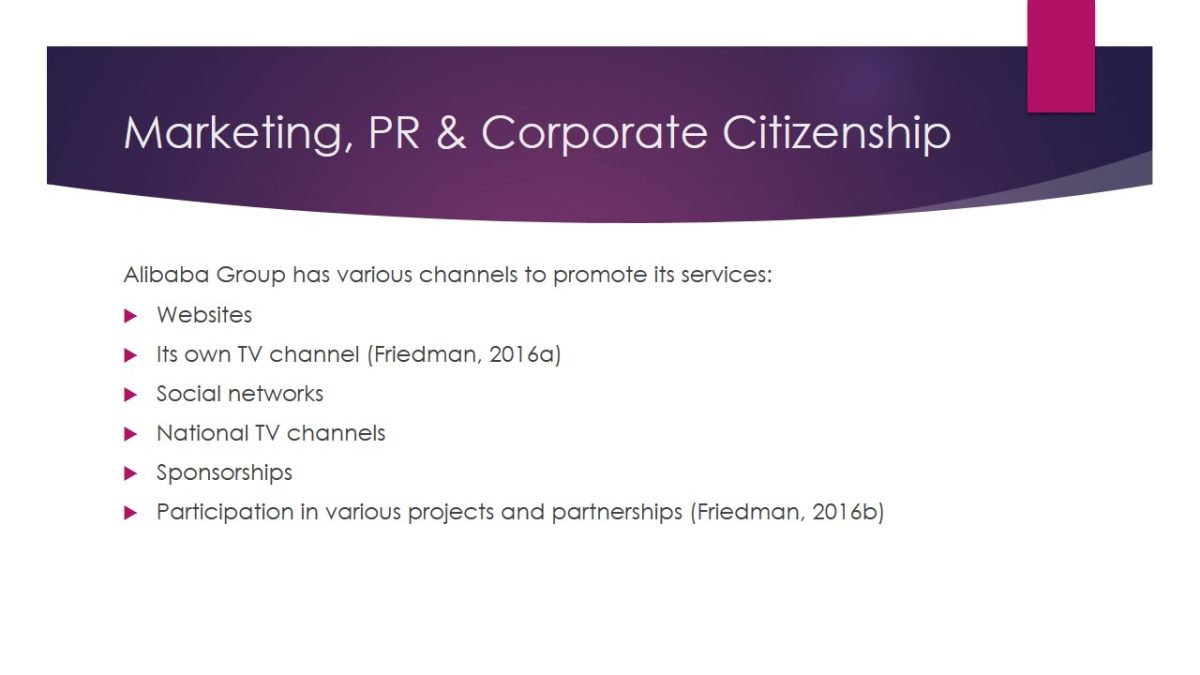
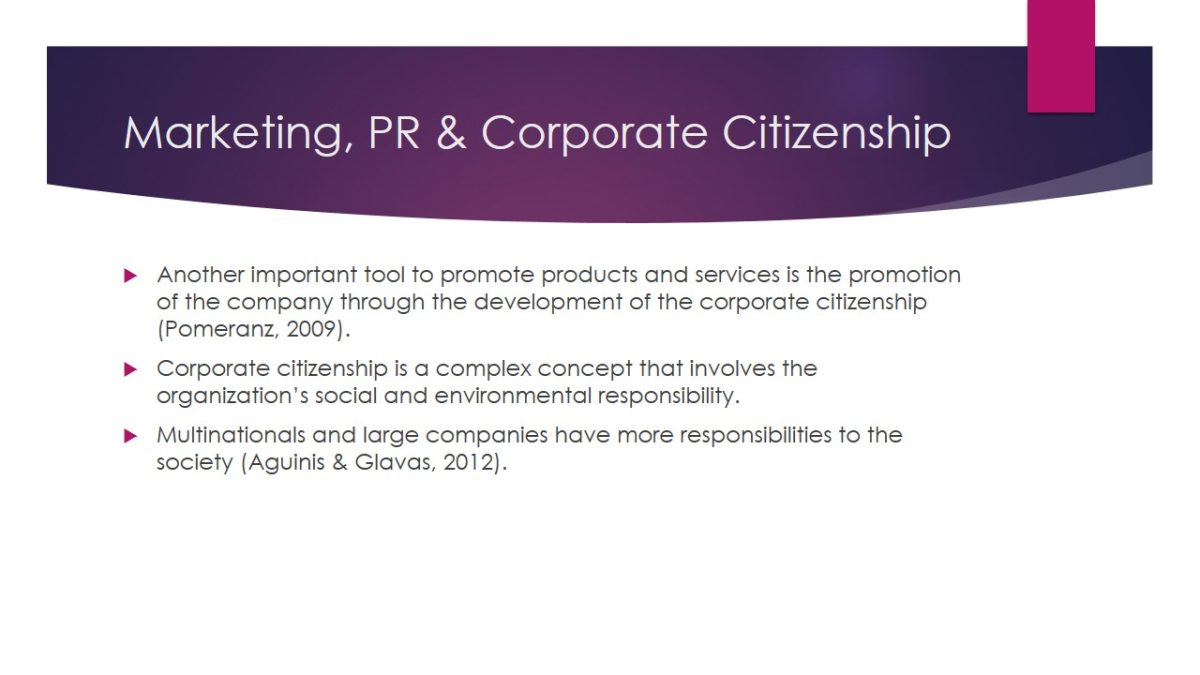
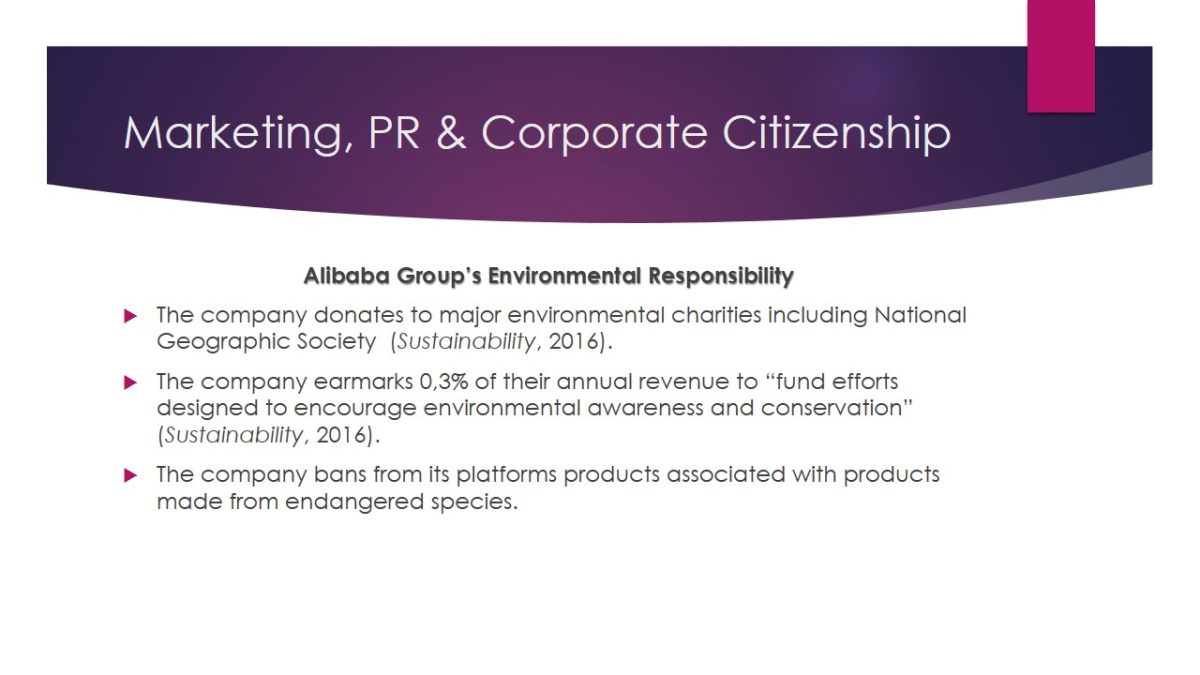
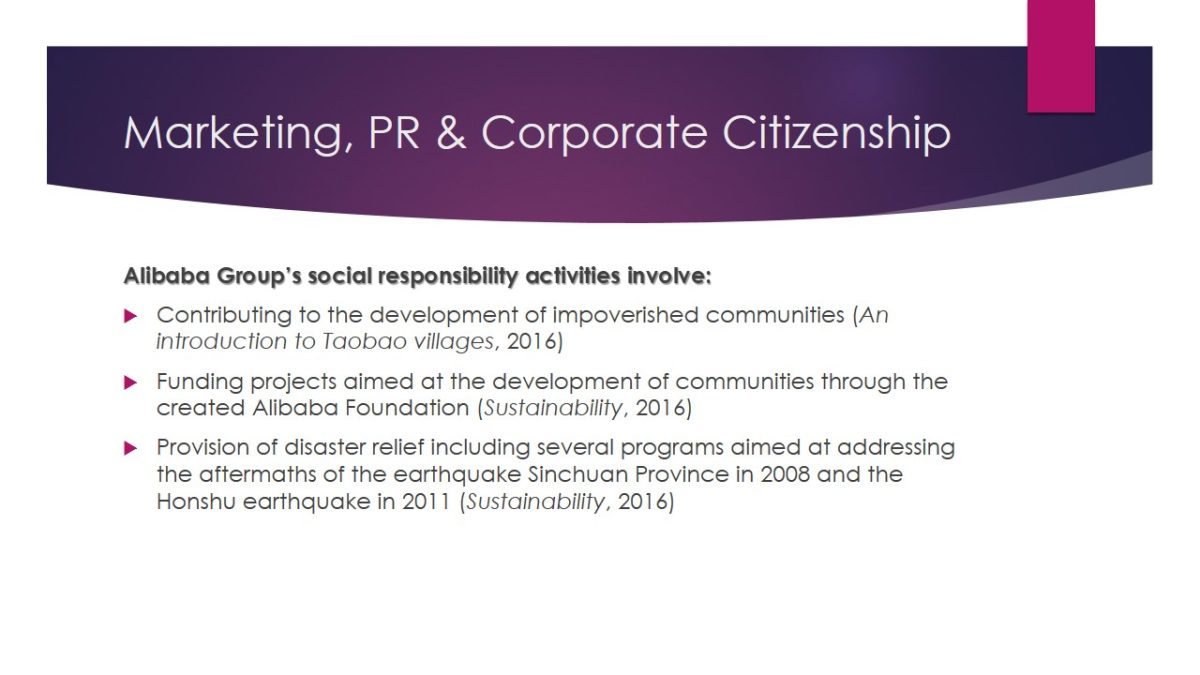
Legal Landscape & Other Ethical Issues
- Chinese Legal Landscape Opportunities:
- Governmental support through taxation (China to promote cross-border e-commerce as incomes rise, 2015).
- Collaboration of the National Development and Reform Commission and Alibaba Group (Alibaba expands e-commerce in rural China, 2016).
- The Chinese government introduces policies that will allow complete foreign ownership of e-commerce companies that will be able to operate in the Chinese market (China to promote cross-border e-commerce as incomes rise, 2015). This policy is aimed at boosting the competitiveness of the e-commerce sphere.
- Counterfeit Products:
- Domestic regulatory bodies
- Foreign regulatory bodies (Choudhury, 2015)
- Internal policies and company’s officials’ statements
- Unethical Conduct:
- Alibaba Group was accused of using inappropriate marketing methods and forcing customers to buy from them instead of playing nice (Chouldhury, 2015). JD.com, the company’s major competitor, noted that the retail extravaganza taking place on November 11 annually is one of such methods. The State Administration of Industry and Commerce reminded all e-commerce companies to play nice without imposing any fines to Alibaba Group.
The Chinese government focuses on the development of the e-commerce market and introduces specific tax policies (reduced taxes) for companies operating in the industry (China to promote cross-border e-commerce as incomes rise, 2015). The National Development and Reform Commission will allocate $1.53 billion to develop online sales in 300 rural areas. This policy is aimed at the development of rural areas.
Clearly, for Alibaba Group, this policy poses certain threats as global key players will be able to enter the Chinese market, and the company will have to work hard to retain its position.
One of the most significant issues the company faces is associated with counterfeit products. The U.S. Government’s Notorious Markets List developed by the US Trade Representative included Taobao until 2012 (Choudhury, 2015). However, the company implemented certain steps to diminish the cases of the use of its platforms for selling counterfeit products. Certain verification procedures were introduced and the situation improved. However, there are still many cases associated with counterfeit products.
However, it is clear that the company should reconsider some of the strategies used to adhere to the concept of the corporate citizenship.
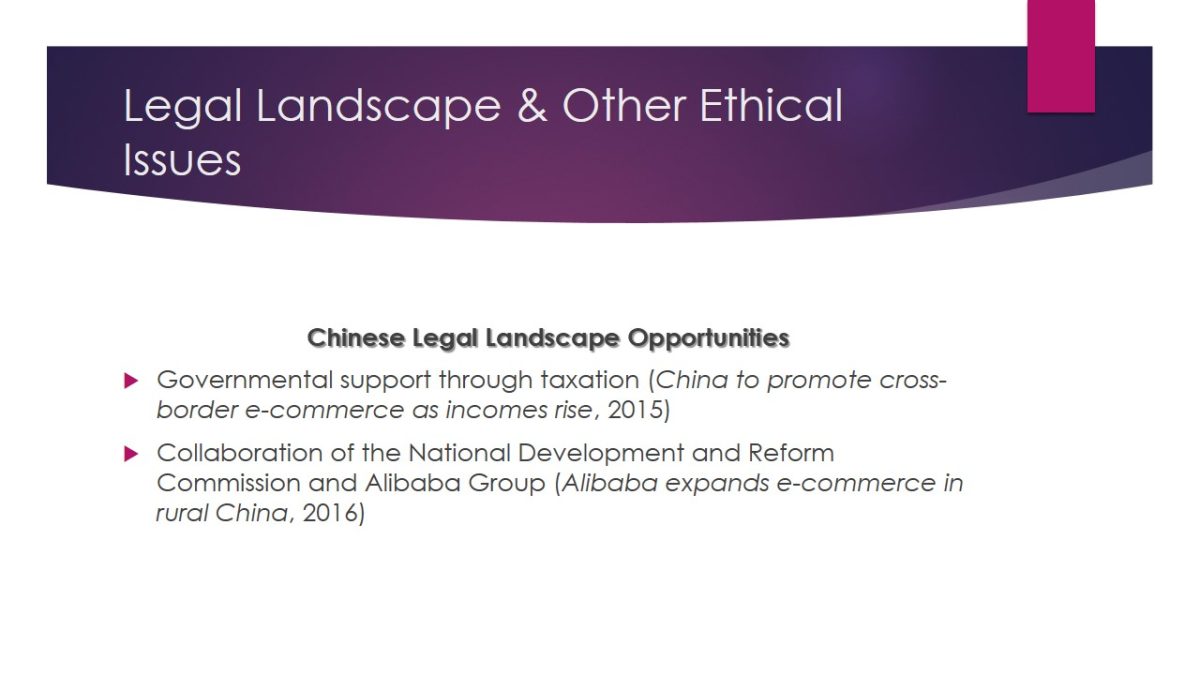
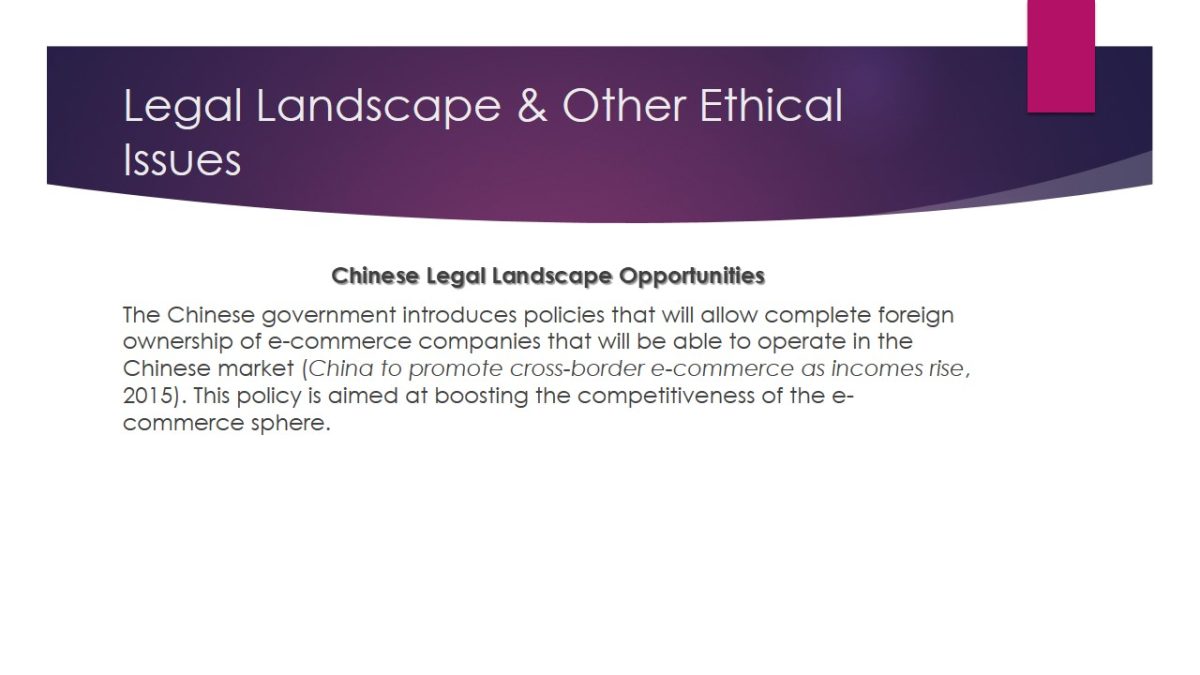
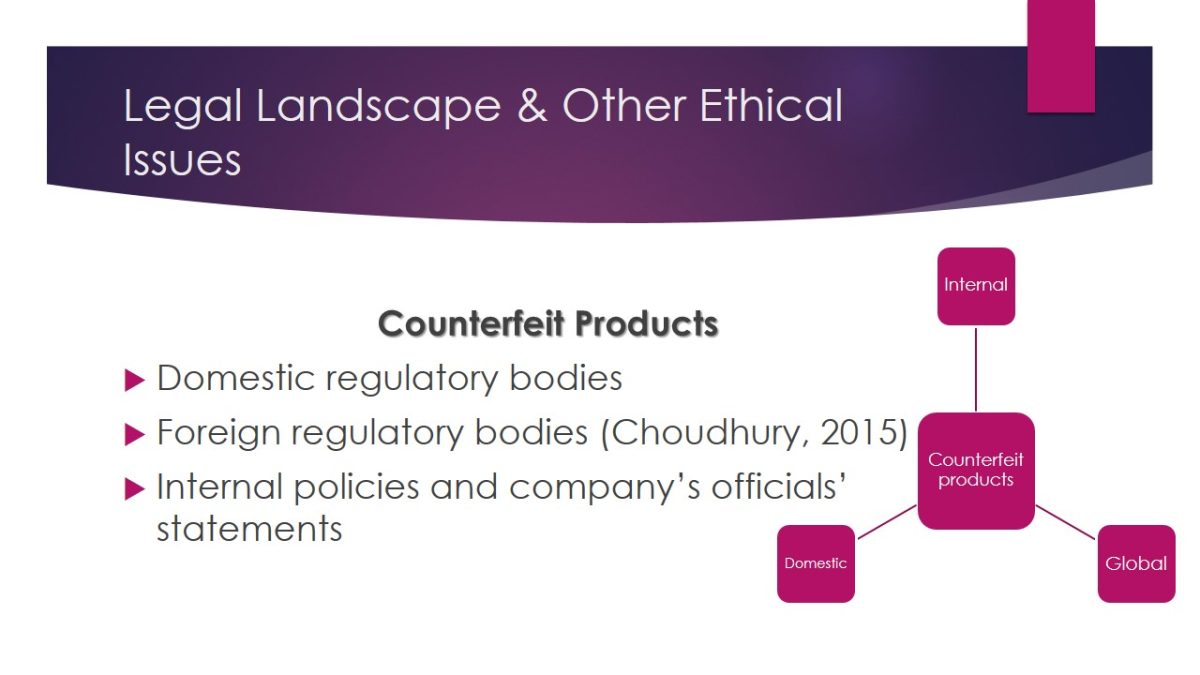
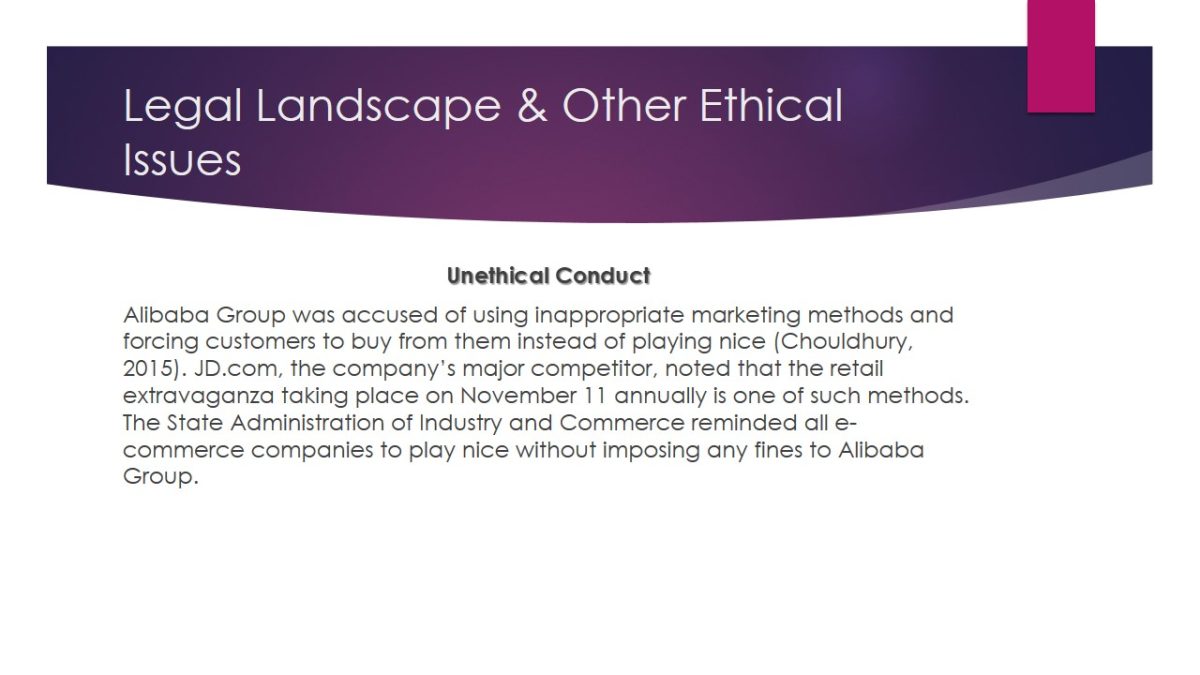
Summary, Recommendations & Conclusions
- Key Points:
- Alibaba Group is one of the leading operators in the e-commerce market.
- Alibaba Group is committed to the adherence to corporate citizenship.
- Alibaba Group has a strong culture, but it still lacks fro the focus on diversity.
- Key Issues to Work on:
- Diversity as regards customers and partners;
- Diversity as regards employees;
- Ethical conduct and strategic decision-making.
- Recommendations:
- The company should:
- Implement comprehensive research concerning the needs of customers in different markets with the focus on gender, age, and cultural differences.
- Incorporate the data concerning the customers’ diversity into the code of ethics.
- Develop detailed guidelines concerning ethical behavior as regards diversity and adherence to the concept of corporate citizenship.
- The company should:
- Benefits:
- Clear understanding of the benefits of the corporate responsibility.
- Clear understanding of the concept of corporate citizenship.
- Future Considerations:
- Adherence to the code of conduct in different countries.
- Strategies to develop an effective code of conduct.
The company’s mission is to meet the needs of customers across the globe, but this concept is absent from the organizational code of ethics. Employees fail to take into account peculiarities of customers in different markets, which makes it impossible for them to make correct decisions.
The code of ethics does not include particular guidelines as to diversity, and employees cannot collaborate effectively due to various issues that may arise.
Finally, ethical conduct is not specifically defined, which contributes to the development of quite unethical policies. For example, the extravaganza can be regarded as an unethical strategy. However, until the company develops a detailed code of conduct, such marketing strategies are likely to be used.
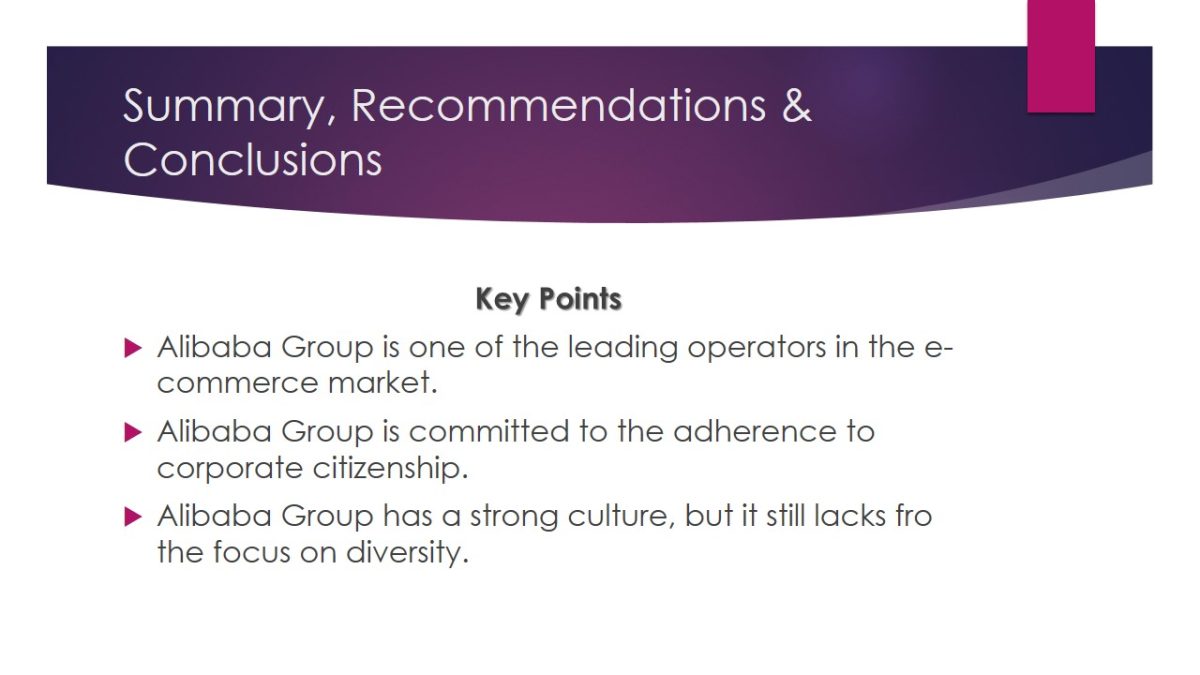
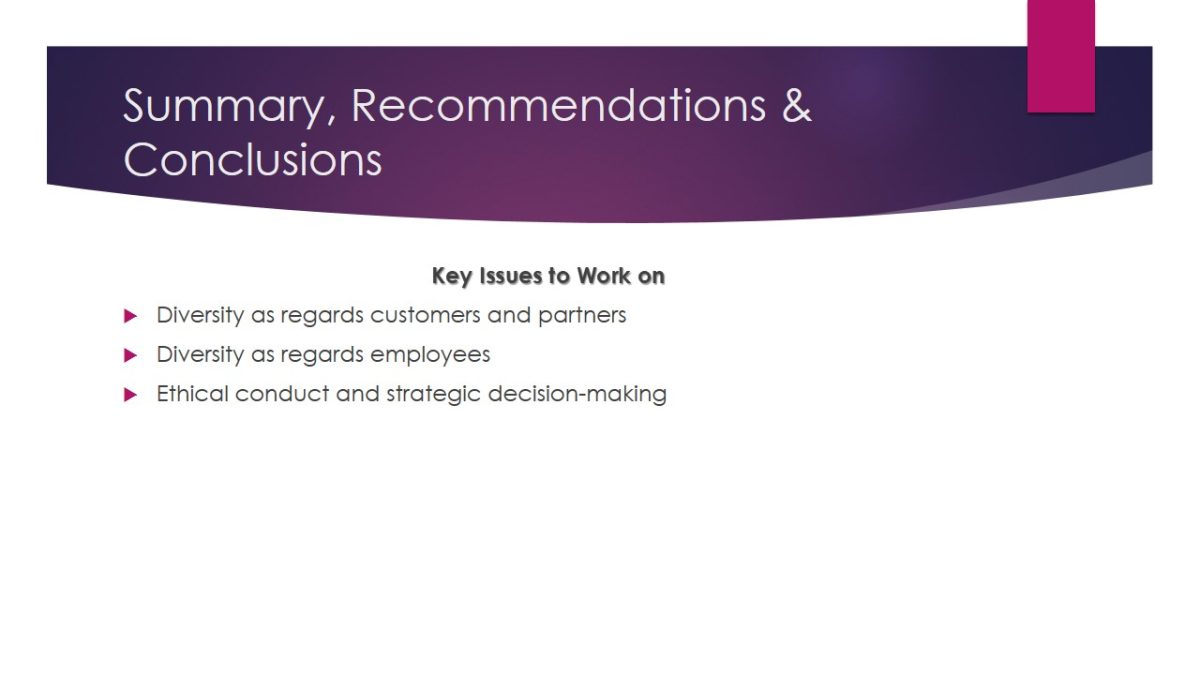
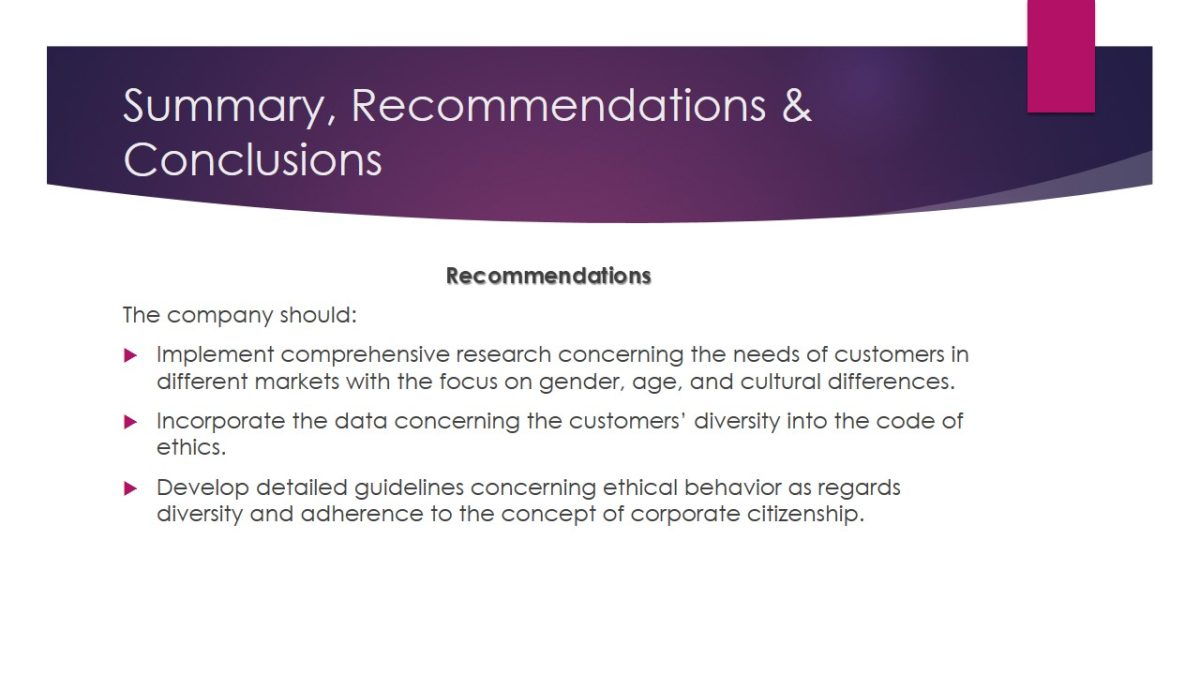
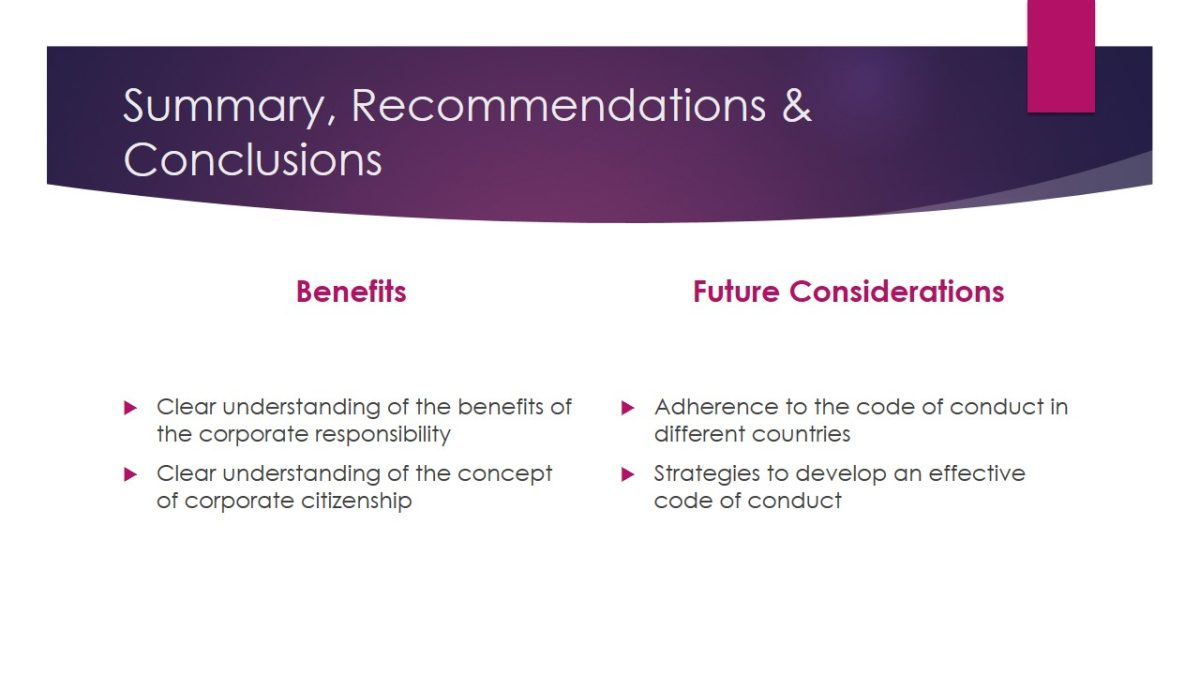
Reference List
Aguinis, H., & Glavas, A. (2012). What we know and don’t know about corporate social responsibility: A review and research agenda. Journal of Management, 38(4), 932-968.
Alibaba expands e-commerce in rural China under gov’t support. (2016). Xinhua Finance. Web.
Alibaba Group Holding Ltd (BABA.N). (n. d.). Web.
An introduction to Taobao villages. (2016). Web.
Brennan, T. (2016). Jack Ma and Howard Schultz share coffee and corporate vision. Web.
Buller, P. F., & McEvoy, G. M. (2012). Strategy, human resource management and performance: Sharpening line of sight. Human Resource Management Review, 22(1), 43-56.
China to promote cross-border e-commerce as incomes rise. (2015). Reuters. Web.
Choudhury, S.R. (2015). Chinese regulatory body tells Alibaba, JD.com to play nice. Web.
Code of ethics. (2014). Web.
Company Overview. (2016). Web.
Corporate governance. (2016). Web.
Friedman, N. (2016a). Behind the scenes with Alibaba Pictures part 1: The origins. Web.
Friedman, N. (2016b). Super Monday? How NFL football is gaining yards in China. Web.
Livas, J. (2009). Management cybernetics: Science of effective organization. Web.
Kirkhaug, R. (2009). The management of meaning: Conditions for perception of values in a hierarchical organization. Journal of Business Ethics, 87(3), 317-324.
Kleasen, K. (2007). Building human resources strategic planning, process and measurement capability: Using Six Sigma as a foundation. Organization Development Journal, Chesterland, 25(2), P37-P41.
Nickels, W. G., McHugh, J. M., & McHugh, S. M. (2013). Understanding business. New York, NY: McGraw-Hill/Irwin.
Pomeranz, R. (2009). The evolution of human resources directors’ responsibilities. The CPA Journal, 79(7), 12-13.
Prajogo, D. I., & McDermott, C. M. (2008). The relationships between operations strategies and operations activities in service context. International Journal of Service Industry Management, 19(4), 506-520.
Sustainability. (2016). Web.
The History & Timeline of the Alibaba Group. (2014). Web.
Zhu, J. Q. (2013). Alibaba Group’s Changing Organizational Structure. Web.